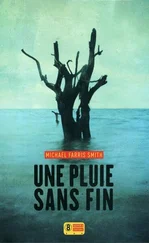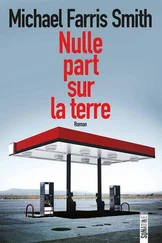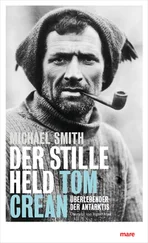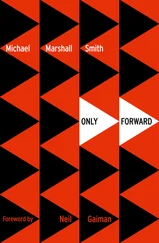Barbara smiled. She was enjoying the luxury of being with a young man who used the expression sympathetic space . That was a real treat. The expression, she felt, could be used as a shibboleth, an expression that one had to utter to establish bona fides - a password at the gate of the camp. But in spite of the sheer, almost physical pleasure of listening to Hugh talk about courtyards, she was keen to discover what had happened in Colombia.
‘And the Colombian family’s mansion had courtyards?’ she asked.
‘Bags of them. Small courtyards leading off bigger ones. Courtyards filled with plants - orchids grew well there. A courtyard that contained an aviary. Highly coloured South American parrots. A toucan. It was all very beautiful.
‘Apollo was matter of fact about it; the children of the rich usually are. Didn’t everybody have courtyards like this? That’s what he probably thought. Either that, or he didn’t care one way or the other. I suppose if you’re called Apollo, there’s a lot that’s going to be beneath your notice.
‘One of the servants had taken my bags to my room, which was at the back of the house, looking towards the large jungle-covered hill that dominated the property. It was a suite of rooms, actually. Leading off the bedroom was a sitting room with heavy Spanish colonial furniture and pictures of family ancestors: a fierce military type with an intimidating moustache; a rather sultry-looking woman in a blue satin dress, all ostrich feathers and bows; a couple of children dressed in uncomfortable-looking outfits, a pony standing behind them. How unhappy that pony looked - later on, during my incarceration, I used to stare at that pony’s face and marvel at how well the artist had captured the state of being subservient, trapped, under the power of another. It was a look of resignation, of resigned acceptance of a fate that was not that which one would have chosen for oneself.
‘Apollo took me outside to show me the swimming pool, which was reached by walking along a narrow, well-tended path through a great shrubbery of rhododendrons. The pool was at the edge of the cleared land where the house and outbuildings stood and it projected into the jungle itself. It was a large stone construction, rather like a half-sunken reservoir. To get into it, you had to mount several stone steps at the side, leading up to the rim, and there before you was the surface of the water, which was very clear but seemed black. This was because of the colour of the stone from which the basin was made. It was a sort of basalt, I think.
‘The pool was fed by a stream that entered it at one end - it was really rather long. Then, at the other end, the water tumbled over rocks and became a small rivulet that disappeared into the shrubbery. Apollo explained that it was wise to walk round the perimeter of the pool before diving in, because of snakes. They often became trapped, the smaller ones finding it difficult to surmount the obstacle presented by the six inches or so of sheer stone between the water and the top of the wall. There was a net on a long pole, which could be used to extract the snakes from the water and deposit them in a large urn that the gardeners had placed at the edge of the shrubbery.
‘I asked him if the snakes were poisonous and he replied that many were. “Everything is dangerous in this country,” he said. “Snakes, plants, mountain roads . . . mothers.”’
83. Freddie de la Hay Forgiven
William had loved his Belgian Shoes, even if he had only had them for a very brief time. They had been so comfortable, with their lightness and their soft, horsehair-filled soles. And now, holding the piece of mangled leather he had taken from Freddie de la Hay’s jaws, he reflected on how foolish, indeed how vain it was to be proud of something like an item of clothing or a pair of shoes. But that was how we were - the pride we felt in childhood when we got something new to wear never really went away. When he was six he had been given a pair of red wellington boots that had filled his heart to bursting point with pride and pleasure; he had been reminded, years later, by his mother how he refused for weeks to take the boots off, wearing them to bed, to church, everywhere.
Marcia looked at Freddie de la Hay with horror when she realised what he had done. ‘You wicked, wicked dog!’ she shouted. ‘Bad dog!’
Freddie de la Hay hung his head. A small drop of saliva fell from his mouth to the floor; it could have been a tear.
‘Smack him,’ Marcia urged. ‘William, you can’t let him get away with it! Your lovely Belgian Shoes. Bad, bad dog!’
‘I can’t smack him,’ said William. ‘He’s already suffering remorse. Look at him. He’s saying sorry.’
‘Rubbish,’ snapped Marcia. ‘He’s just bad.’
William shook his head. ‘He’s not bad. He’s had a bit of a lapse, that’s all.’
He crouched down on his haunches and gently lifted up Freddie’s snout so that man and dog were looking at one another eye to eye. ‘Freddie, I’m very disappointed,’ he said. ‘Those shoes . . . well, they were very special shoes. Do you promise never to do that again?’
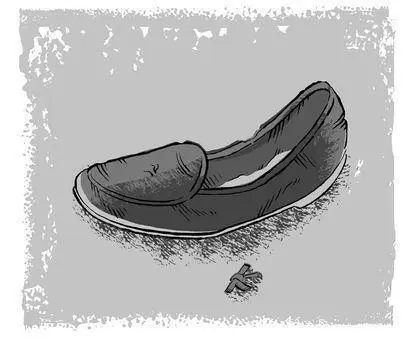
Freddie stared at William. He knew that he had done something terrible and that he was in disgrace. He was not quite sure what it was, but he knew that there had been a sudden interruption of the current of love and affection that existed between him and William, which was, for him as it was for all dogs, the entire rationale of his existence. His theology was simple: William existed, and he, Freddie, existed to do William’s bidding and to please him. William’s displeasure was terrible unto him, and he could not bear it. But now his owner was patting his head and that brief, awful period of being cut off was over. He licked William’s hand, grateful for the restoration, the forgiveness.
Marcia turned away. Seeing William forgive Freddie de la Hay in this way, she had become conscious of how vindictive she sounded when she had urged him to smack the dog. How mean she must have seemed in William’s eyes; how cruel. William was a good man, a gentle and kind man, and she had behaved like one of those women, strangers to the case, who hammer on the side of the police van as it takes some unpopular criminal away from court and off to prison, the contemporary equivalent of the tricoteuses who knitted as the guillotine did its terrible revolutionary work.
This realisation amounted to more than a mere dawning of self-understanding; it made her see, too, how different they were. William was a sensitive, thoughtful man, and she admired him for that. But was she worthy of such a man? The problem was that there were depths to him that she simply could not match in herself. He was more perceptive than she was; he had read more; knew more about the world; saw things in a different, more subtly nuanced light. And while she appreciated this, her appreciation was that of the amateur who gazes upon a work of beauty, a great painting perhaps: the work of art is admired, but the observer knows that it belongs to a realm of understanding that will be for ever beyond him. He may look on, but that does not mean he can converse with the artist.
All of this made her conscious that her decision to renounce her claim on him was the right one. And although Marcia did not know it, that very decision, in its unselfishness and realism, made her something of a great person too. She was unlikely ever to say anything profound; she would never change the way the world was; but she had taken a step in the direction of living rightly. That made Marcia great - in a tiny way.
Читать дальше


